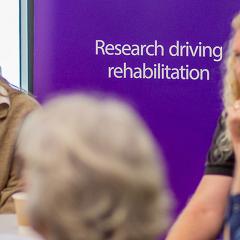Evaluation of a physical activity promotion intervention for adults with whiplash associated disorders: a single-case experimental design study.
What is the research about?
Although neck pain is the most frequent symptom for individuals with whiplash associated disorder (WAD), it is common for individuals with WAD to experience a range of other physical impairments and psychological distress. Additionally, individuals with chronic whiplash may have lower aerobic capacity and decreased isometric strength compared with age-matched individuals with no neck pain.
It is not known if this reduced physical fitness is associated with an increased risk of ongoing pain and disability. However, it is well established that reduced physical fitness results from reduced levels of physical activity (PA) and is associated with increased risk of preventable morbidity and mortality.
The present study aimed to evaluate whether participation in a theory-based intervention designed to promote physical activity changed three target behaviours in people with chronic WAD:
- Participation in habitual physical activity;
- Pain interference; and
- Confidence in completing daily tasks in the presence of neck pain.
We also evaluated changes in factors associated with neck pain and disability, quality of life and other psychological measures following participation.
What did the researchers do?
Individuals with chronic whiplash associated disorder participated in a program designed to increase daily physical activity. Each individual had 12 sessions with an Accredited Exercise Physiologist delivered in their home. These sessions included strategies that helped participants change their physical activity behaviour. Participants wore a watch-like accelerometer that measured daily physical activity and completed questionnaires about neck pain and disability, quality of life and other relevant outcome measures.
What did the researchers find?
Significant improvements in physical and psychological health were reported following participation in the theory-based physical activity intervention. These improvements included:
- Increased accelerometer-measured physical activity in half of the participants;
- Pain interference improved in a few participants; and,
- Confidence in completing daily tasks in the presence of pain improved in one participant.
Mental health quality of life improved to healthy levels in almost all participants, and most participants' physical health quality of life. Improvements in pain catastrophizing and pain self-efficacy were reported in those participants with baseline symptoms outside threshold levels.
How can you use this research?
The results of this study showed that people with chronic whiplash associated disorder who undertake targeted activities to help increase daily physical activity may experience benefits. Benefits include reduced neck disability and improved quality of life, in addition to increasing daily physical activity.
For Rehabilitation professionals, recommending theory-based physical activity promotion strategies may help people with persistent whiplash associated disorder reduce physical impairments and psychological distress. Improvements in physical and psychological health may occur independently of increasing habitual physical activity.
About the researchers

The research was a collaborative project between researchers at RECOVER The University of Queensland (UQ), School of Psychology UQ and School of Human Movement and Nutrition Science UQ, Griffith University, and The University of Sydney.
Carrie Ritchie*a, Kelly Clanchyb, Michele Sterlinga, Robyn Tatec, Esther J Smitsd, Melissa Dayef, Jane Nikelsa, Jenna Liimataineng, and Sean M Tweedyg
a RECOVER Injury Research Centre and National Health and Medical Research Council (NHMRC) Centre of Research Excellence in Recovery after Road Traffic Injury, The University of Queensland, Queensland, Australia.
b School of Health Sciences and Social Work, Menzies Health Institute, Griffith University, Queensland, Australia.
c Emeritus Professor, John Walsh Centre for Rehabilitation Research, The University of Sydney, New South Wales, Australia.
d RECOVER Injury Research Centre, The University of Queensland, Queensland, Australia.
e School of Psychology, The University of Queensland, Queensland, Australia.
f Department of Rehabilitation Medicine, University of Washington, Washington, USA.
g School of Human Movement and Nutrition Sciences, The University of Queensland, Queensland, Australia.Name of each researcher and a description.
Citation
Carrie Ritchie, Kelly Clanchy, Michele Sterling, Robyn Tate, Esther J. Smits, Melissa Day, Jane Nikles, Jenna Liimatainen & Sean M. Tweedy (2021): Evaluation of a physical activity promotion intervention for adults with whiplash associated disorders: a single-case experimental design study, Disability and Rehabilitation, DOI: 10.1080/09638288.2021.1989062
Keywords
Whiplash associated disorders; physical activity; behaviour change; single case experimental design; accelerometer; pain interference
Contact information, acknowledgements
Funding for this project was provided by the Faculty of Health and Behavioural Sciences Research Collaboration Seeding Grant, The University of Queensland, Queensland, Australia.



